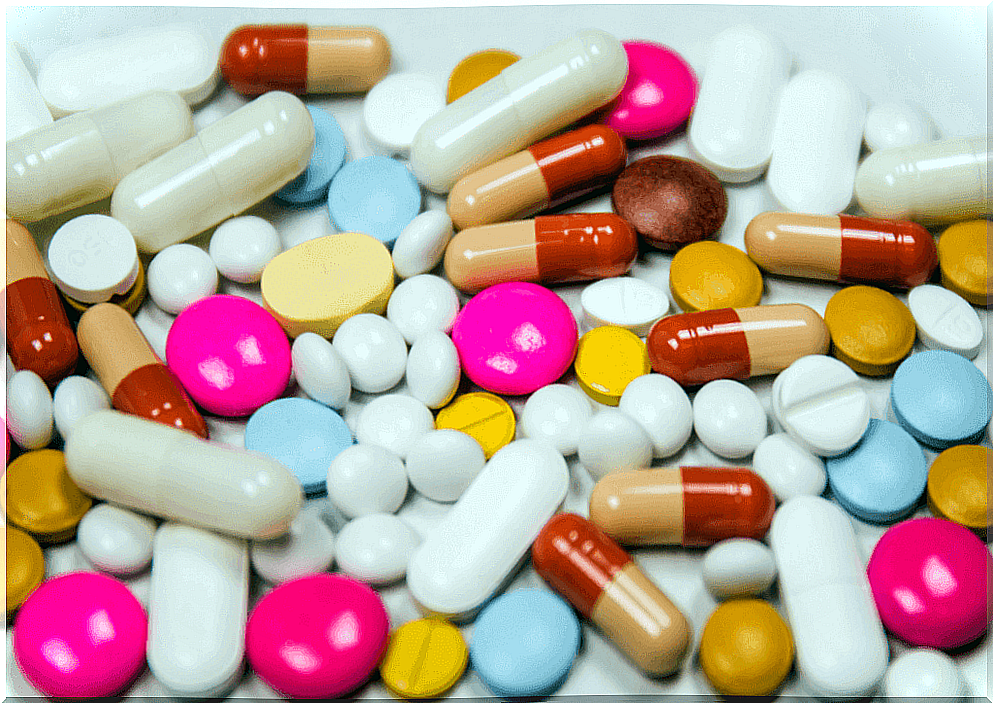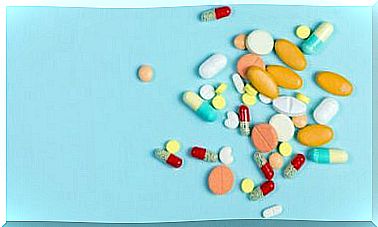Why Does Depression Make Us More Vulnerable To Fatigue?

People with depression are more vulnerable to fatigue. Accessible tasks like just washing or getting out of bed may require more effort than they are capable of. Additionally, fatigue can impact other symptoms associated with depression such as abstinence or listlessness.
Depression can increase the feeling of fatigue. The person then has the impression of not being able to carry out activities which he carried out before. In fact, according to clinical psychologist Shoshana Bennett, “ It is rare that fatigue is not one of the symptoms of depression”.
Fatigue affects over 90% of people with acute depressive disorder. This is the information presented by Ghanean, Ceniti and Kennedy (2018) in an article published in CNS Drugs. But, what causes the fatigue associated with depression?
Why does depression make us more vulnerable to fatigue?
According to statistics, residual fatigue in depression significantly contributes to the deterioration of the quality of life. In addition, it is an important risk factor for chronicity and relapse (Marin, H. and Menza, 2004).
The possible causes behind fatigue in depressive disorders include sleep problems such as diet, stress, or the medications used to treat depression itself. By following we will see

Do you have trouble sleeping?
Sleep is essential for regenerating the body and restoring energy to it. Lack of sleep by itself is not the cause of depression. However, it increases the risk of its occurrence. Lack of sleep can also worsen symptoms of existing depression. In fact, in some people with depression who sleep well, the quality of sleep may not be good.
Soehner, A., Kaplan, K and Harvey (2014) state that many people with depression or other mental health conditions such as bipolar disorder experience both insomnia and hypersomnia.
Sleep apnea is another sleep disorder that is linked to depression. In fact, one study showed that depression is common in people with sleep apnea and it has a direct influence on the severity of sleep apnea (Edwards et al., 2015). The study showed that treating sleep apnea helps relieve symptoms of depression.
Are you on an inadequate diet?
For a very long time, theories have been heard regarding the impact of diet on mental health. One study found that the most qualitative diets, such as those including “anti-inflammatory foods”, can reduce the risk of depression in some people (Soehner et al., 2014).
Li et al. (2017) asserted that specific diet regimens are linked to a greater risk of depression. In fact, Western-style diets high in red meats, processed meats, refined grains, sweets, and other unhealthy foods may increase the risk of symptoms of depression in some people.
Are you stressed out?
Stress can affect serotonin and dopamine levels. In the brain, these chemicals play a vital role in regulating mood and energy.
A study has shown that stressful life events such as the end of a relationship, the loss of a loved one, a significant loss or changes in health can significantly increase the risk of developing major depressive disorder in one person. (Slavich e Irwin, 2014). This study suggests the fact that stress can also cause inflammation within our body. This inflammation could cause hypersomnia and thus make us more vulnerable to fatigue.
Are you taking antidepressants?
Antidepressants act on neurotransmitters in the brain by helping to improve the function of regulating an individual’s mood. However, some antidepressants can cause significant fatigue.
For example, Targum and Fava (2011) state that some side effects of drugs used to treat major depressive disorder can be symptoms of fatigue.

How to reduce fatigue when you are depressed?
In addition to talking to your doctor about this problem so that they can diagnose other problems or adjust your treatment, there are a number of ways you can do things to reduce the fatigue associated with depression.
- Get some exercise. You will sleep better and promote the segregation of hormones and substances in your brain. This will help increase your sense of well-being.
- Practice good sleep hygiene. Follow a routine that promotes quality sleep: pay attention to your diet, follow relaxation exercises, etc.
- Improve your diet. Avoid foods high in non-beneficial fats: fried foods, fats, and refined sugars. Increase your intake of green vegetables, white fish, probiotic foods, and other beneficial foods.
- Practice mindfulness. Mindfulness meditation will help you improve your mood and relieve stress.
Remember that just being more vulnerable to fatigue during depression doesn’t mean we have to comply with it. By being more proactive with our situation, we will alleviate the symptoms of depression.










